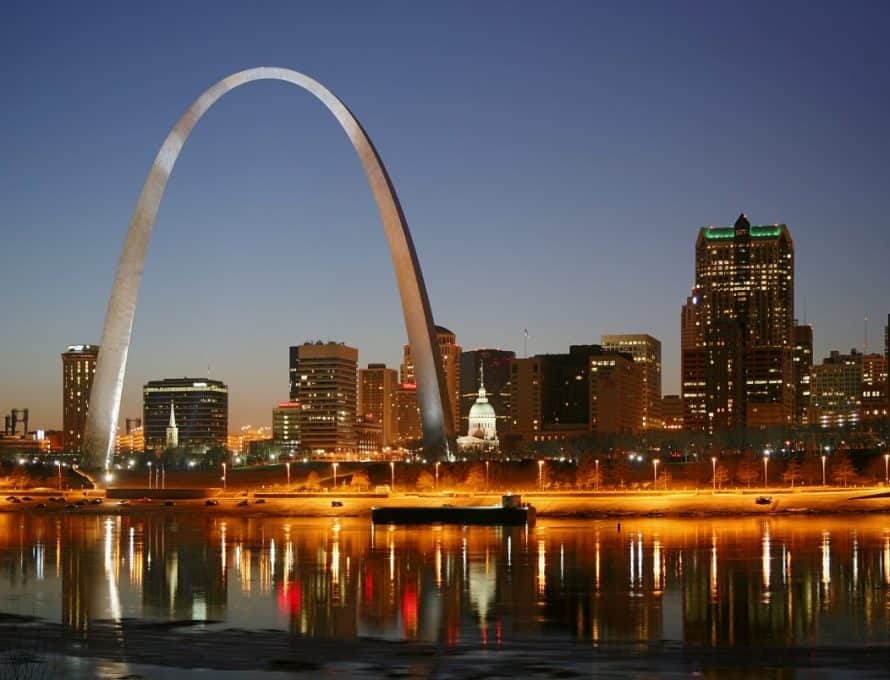ST. LOUIS – Reactions were pretty much in agreement among Missourians interviewed at the SBC Annual Meeting following the adoption of a resolution on the Confederate Battle Flag, June 14.
The Pathway spoke to some of those Missourians for a take on their perspective on the issue, which garnered the most debate of all the resolutions passed by the convention. The resolution asked Baptists not to fly the Confederate Battle Flag as a sign of respect to African-American brothers and sisters.
Philip Shuford, director of missions for the Tri-County Baptist Association said he thought the convention made the right decision about the wording of the resolution.
“It could not have been stated better, for a biblical position, than James Merritt did.”
Shuford said he is from the South. Noting the convention is being held close to Ferguson, he thought it was a time for the Southern Baptists to come to terms with the issue.
“Race relations in the SBC is a larger reflection of United States society. All of America is trying to navigate these waters. What happened this week needed to happen.”
During the discussion time for the approval of the Confederate Flag resolution, there were opinions being offered on the pro and con side of the committee’s revision of the proposed resolution. Messenger James Merritt of Cross Pointe Church, Duluth, Ga., offered a stronger wording for reasons why the Confederate Battle Flag is offensive and was being encouraged not to be displayed by Baptists.
Anger erupted in a discussion which ensued during a point of order raised by Judge Paul Pressler, Houston, Texas, as the vote on the resolution was being taken. The chair ruled Judge Pressler’s point not well taken after it was explained the microphone lighting system used by the convention had allowed for discussion both pro and con and then time had run out for debate on the motion.
Brian Baker, pastor of First Baptist Church, Marceline, said he thought “the Confederate Battle Flag has had attached to it a complicated pastiche of meanings unique to many groups. We have to face the fact that its significance specifically to black Americans is profoundly painful.”
He gave an example: “If someone says, and repeatedly, ‘That hurts,’ an appropriate response isn’t to say, ‘It wasn’t supposed to,’ and continue the hurtful practice – or worse, to say, ‘No, it doesn’t hurt.’
“If we’re being hurtful to black people, made in God’s image, with our use of a flag, then we need to stop using the flag, full stop.”
“Southern culture has many positive touchstones, many quite symbolic, that are well worth celebrating. God’s people should celebrate what is good, and think on those things, and not hurt others, for the glory of Christ,” he concluded.
Larry Lewis, director of missions for Mid-Missouri Baptist Association, Columbia, said the resolution on the Confederate Battle Flag sent a positive word of support against racism.
“It (the flag) is an affront to African-American brothers and sisters. Some may call it a symbol of their Southern heritage. But since it is a symbol of racism in the minds of many, it should not be displayed.”
He referred to Romans 14:21 where the Bible says, “It is a noble thing not to eat meat, or drink wine, or do anything that makes your brother stumble.”
Lewis added, “I don’t think there should be laws to forbid that flag to fly. We live in a free country, and we have the right to speak and fly a flag.”
Both Lewis and Baker agreed the SBC has made great progress in race relations in recent decades.
Baker noted, “The evolving face of SBC leadership, the exponentially growing number of non-white church members, and the tenor of our discussions is proof indeed not only that people can change, but far greater, that evil, even in the church, can be gloriously redeemed by the grace and power of Christ.”
Lewis said his first SBC meeting was in St. Louis about 60 years earlier in the Kiel Auditorium. Discussion of a resolution supportive of the Brown vs. Topeka Supreme Court decision allowing for desegregation was in progress when a great many messengers rose up in opposition, many of them angrily walking out during the resolution debate.

